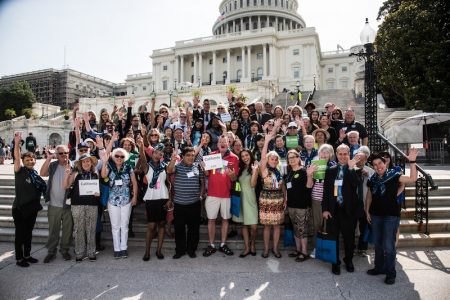An individual’s mental health is an essential part of their overall health. But discrimination in health care often keeps people from accessing the mental health care they need.
So, today, March 1, we observe Zero Discrimination Day, which was first celebrated by the United Nations in 2014. Zero Discrimination Day provides an opportunity for us to reflect on how far we’ve come — and how much work remains to be done.
The idea that mental health is an integral part of overall health is a simple concept, one that illustrates why we must provide equitable mental health care. Unfortunately, our country has a long way to go to make this concept a reality. At NAMI (National Alliance on Mental Illness), we know all too well that people with mental illness and their families face daily battles to get the help they need, when they need it.
For decades, NAMI and other organizations in the mental health space have successfully fought for state and federal parity laws, which require that insurance plans cover mental health conditions and substance use disorders at the same level as they cover physical health conditions. The Affordable Care Act (ACA) was an important milestone in this fight because it meant that millions of people covered by individual and small-group health plans would have their mental health conditions covered. The ACA requires that plans offered through the Health Insurance Marketplace cover treatment for mental health and substance use conditions at parity. And because of additional provisions in the ACA, these plans can no longer turn people away if they live with mental illness – or deny them coverage for pre-existing conditions.
Over the past few years, however, we’ve seen disturbing efforts to roll back parity laws and patient protections. New federal rules are expanding, not curtailing, discriminatory health plans such as short-term limited duration plans, which aren’t required to cover mental health and substance use treatment at all, let alone at parity. In fact, a recent analysis found that 43 percent of short-term limited duration plans don’t offer any mental health services.
These bare-bones health plans are bad news for people with mental health conditions, and they target younger, healthier adults at the point in life when individuals tend to start experiencing the symptoms of the most severe mental health conditions. People who use these plans often find they don’t have any mental health coverage at the time they need it most.
As we see proposals for regulations that threaten the gains we’ve made for those with mental health conditions and substance use disorders, we continue our fight to ensure that every person can get the help they need.
In fact, NAMI joined a lawsuit with the Association for Community Affiliated Plans and other organizations to stop the implementation of the Trump administration’s new short-term limited duration plan rule. We’re also fighting in states across the country to strengthen parity laws and make sure insurance commissioners have the right tools to enforce existing parity rules in their state.
In addition to enforcing parity laws, we’re also committed to empowering consumers. This is one of the key reasons we partnered with the Don’t Deny Me Campaign. It was created to empower consumers to speak up against wrongful denials of care and help them learn to file appeals against insurers. Visit www.DontDenyMe.org to learn more about your rights to equal treatment and to get connected to helpful resources.
We won’t accept going back to a time when people were denied health insurance, charged more for coverage, or turned down for renewal just because of their mental health condition. Last year, NAMI released a report called Mental Health Parity at Risk to show how dangerous it is to remove patient protections—and just how bad it was for people with mental health conditions before these protections were in place.
Zero Discrimination Day may be observed today, but we will continue to fight every day to make sure that people with mental health conditions don’t face discrimination that prevents them from getting the health care they need and deserve. Learn more about how you can join our efforts by visiting www.nami.org/advocacy.
Angela Kimball brings expertise in grassroots advocacy campaigns and mental health policy to NAMI, as well as a drive to fight inequities and champion better care for people with mental health conditions and their families. Today, she leads NAMI’s advocacy and public policy team. She has received several awards for her legislative work on children’s mental health reform and mental health parity.
Note: This post is part of a series of blogs showcasing partners of the Don’t Deny Me campaign. The campaign empowers patients and their loved ones to report illegal insurance denials of mental health and addiction treatment, and fight for their parity rights. To learn more, visit www.dontdenyme.org.

